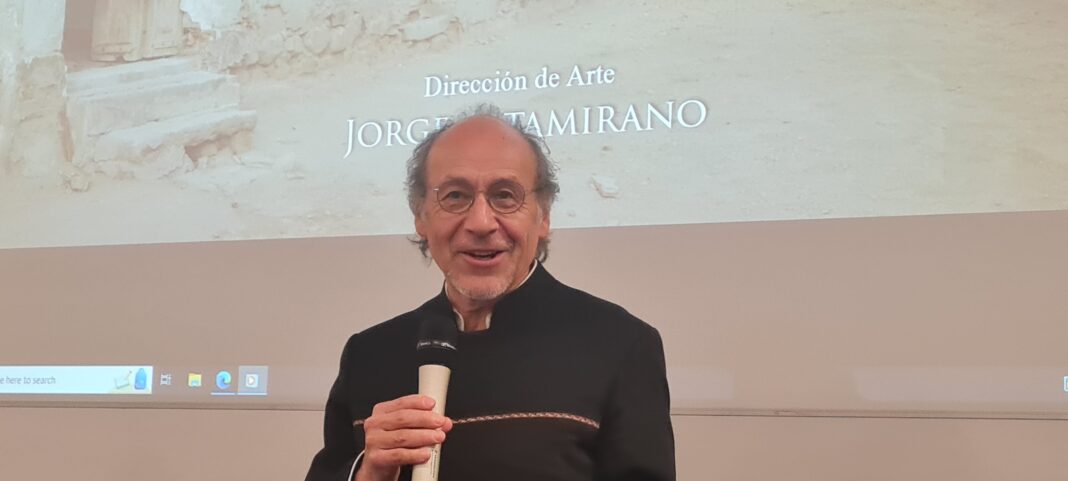To celebrate the achievements and contributions of women around the world, the Embassy of the Plurinational State of Bolivia in The Hague and the International Institute of Social Studies at Erasmus University Rotterdam commemorated International Women’s Day with inspiration and empowerment by presenting a special screening of the award winning film “Juana Azurduy, Guerrilla of the Great Homeland.” The audience consisted of diplomats, members of the Bolivian diaspora, teachers, alumni, as well as individuals from Venezuela, Cuba, Chile, Uruguay, Ukraine, and local Dutch people.
The powerful history of the revolutionary woman Juana Azurduy delves into the life of this guerrilla military leader who fought for Bolivian and Argentine independence, starting from a day in November 1825 in the Bolivian city of Chuquisaca. There, Doña Juana Azurduy Bermúdez de Padilla, heroine of the independence war against the Spanish army, receives a visit from the liberators Simón Bolívar, Antonio José de Sucre, and José Miguel Lanza. Throughout a long conversation, in a very modest dwelling where she resided, Juana receives the admiration of the rulers while reminiscing about the most significant episodes of her career as a patriot and commander of the armed forces. She also reflects on the loss of her four children, husband, so many patriots and all her belongings during the war. She confronts the results of her sacrifices and those of many others, juxtaposing them with the triumphalism and ignorance of the ruling liberators.
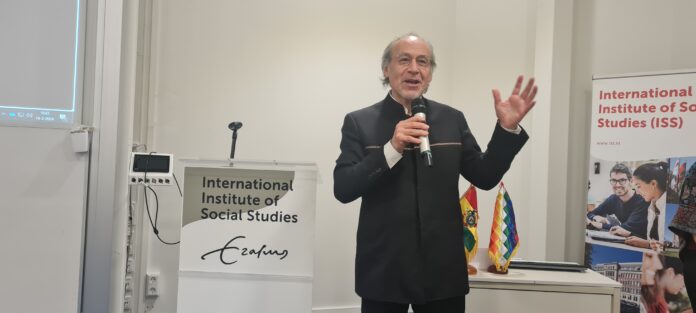
The Ambassador of Bolivia, H.E. Mr. Roberto Calzadilla Sarmiento, introduced the film to the audience, mentioning the historical context of the film, which was unknown to many present. The heroine Juana Azurduy, a fighter of many battles on all fronts until the end of her life, serves as a reference for Bolivia and the world.
Ambassador Calzadilla spoke about the lengthy and arduous process necessary for real transformation, citing the change of Bolivia’s constitution in 2009. In this perspective, Bolivia became the Plurinational State of Bolivia, aiming to provide inclusion and extended rights to the indigenous people, to the mother earth. “One of the lessons from Juana Azurduy was that she learned to overcome her own fears, to fight life but first fighting our own fears. Juana deeply believed in change, in the transformation of oneself, but also of everything around us.”
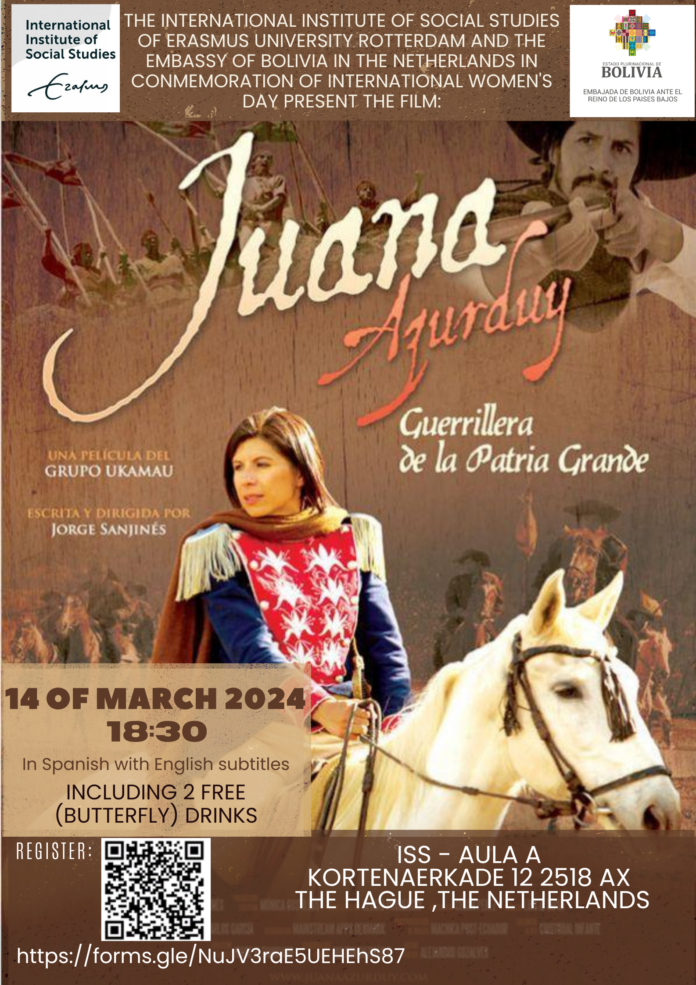
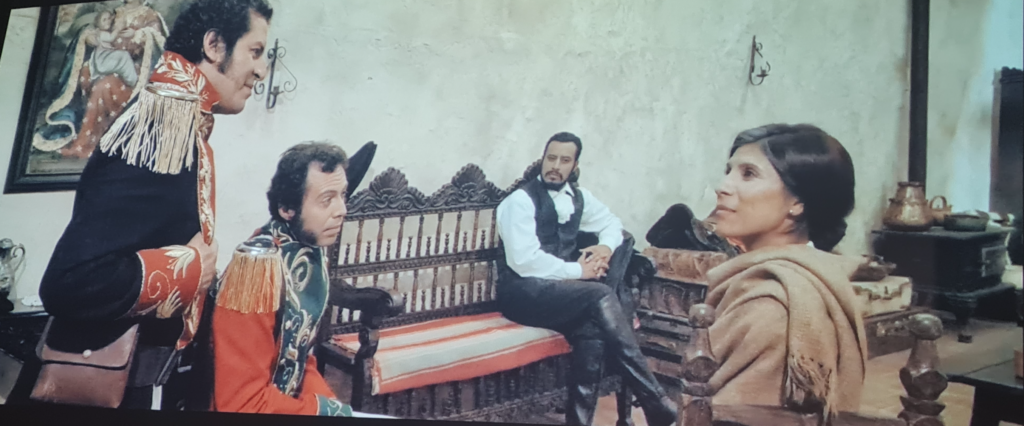
Directed by Jorge Sanjinés, Bolivia, 2016, the film featured Mercedes Piti Campos as Juana, a well-known theatre actor and singer who reinvented herself as a film actor. Campos learned horseback riding and fencing for months, delved into reading about the heroine, attended conferences, and learned from the director about his expectations for her portrayal of Juana. She said, “To personify a historical figure of the stature of Juana Azurduy is a great human challenge, and as an actress, it was also an enormous learning experience.”
Prof. Dr. Ruard Ganzevoort, Rector of the International Institute of Social Studies, commented on the film, emphasizing that war doesn’t end after the final battle; profound political and social changes are needed to reverse the causes that led to the war, otherwise, the same situation will re-establish itself with other actors.
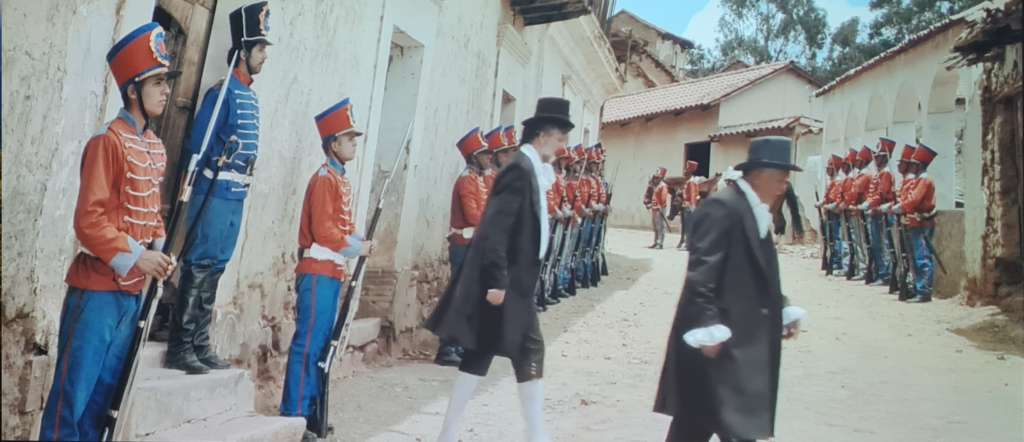
After the screening, the ISS and the Embassy of Bolivia invited the guests to a reception at the university bar. Extended conversations ensued after the screening, pondering what Juana would do in this time, how many Juanas are still around, and from where we could resemble Juana in the current context.

